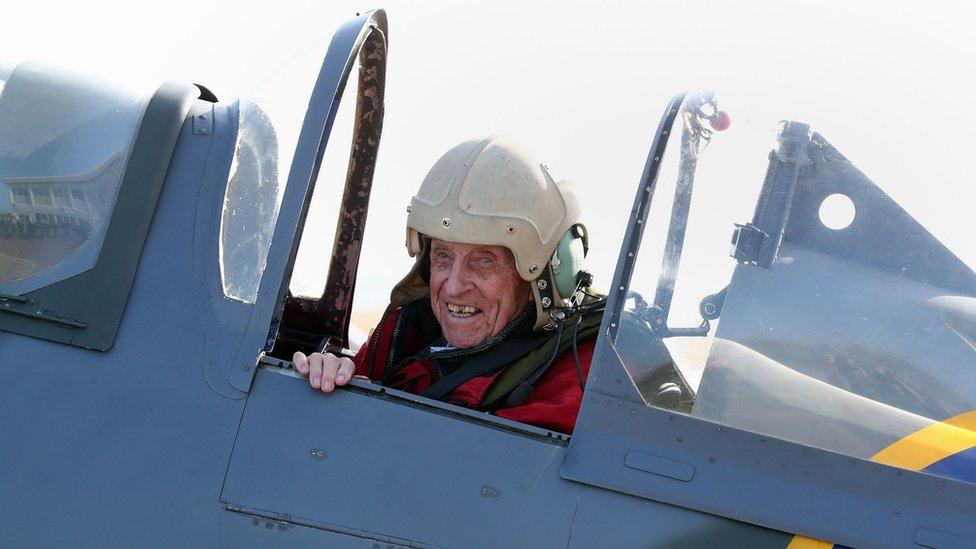Biggin Hill Airport flight school axed after 70 years
- Published
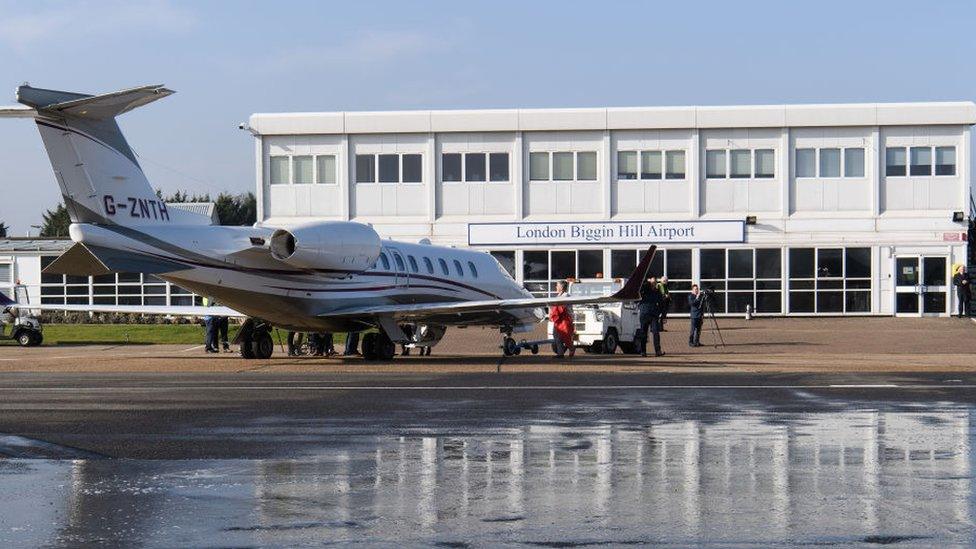
Biggin Hill Airport recently received permission to extend its opening hours to focus on business aviation
A family-run flight school says it has been asked to leave Biggin Hill Airport after 70 years as the airport focuses on "more lucrative" private jets.
Falcon Flying Group, which runs two flying schools on the site, said it was "heartbroken" after being given six months to move from the premises.
The airport, a famed RAF base during the Battle of Britain, called the move "necessary" to maintain safety.
A group of MPs has written to the airport, urging managers to reconsider.
Grant Shapps, chair of the all-party parliamentary group (APPG) on aviation, called the move a "short-term decision which is going to damage both Biggin Hill and British aviation in the long run".
He said the Boeing Company projected the global aviation industry needed an extra 1.2 million specialist staff, including 500,000 pilots, by 2032.
"There's a responsibility that goes beyond improving the business model that looks at the future of the whole sector," Mr Shapps said.

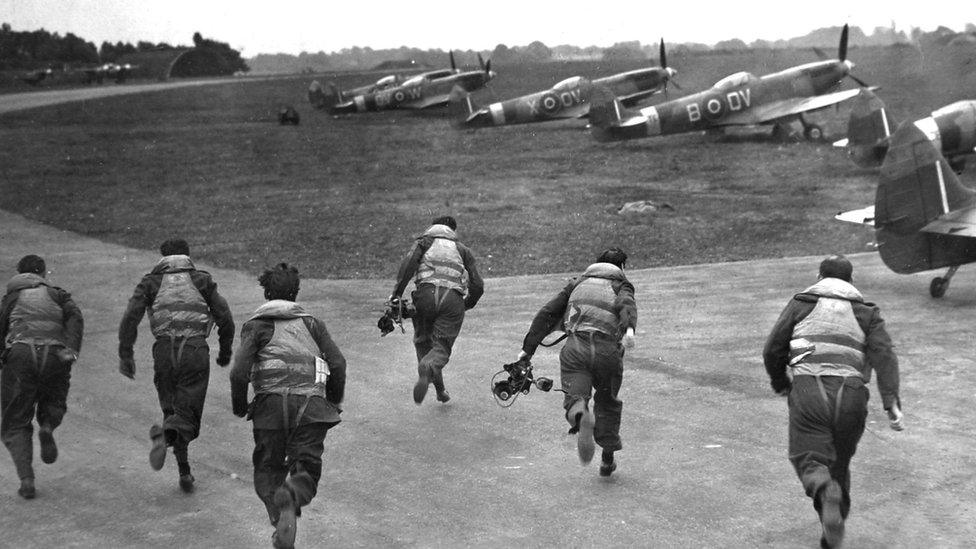
Biggin Hill was instrumental in the RAF's defence of the UK
Biggin Hill history
The airfield in Bromley was originally opened in 1917 as a part of the London Air Defence Area.
It served as one of the key bases of RAF Fighter Command during the Second World War.
It played a central part in the Battle of Britain, housing Hurricanes and Spitfires responsible for protecting the south-east of England.
In the 1950s it began accepting civil flights alongside its role as a rapid reaction station.

Biggin Hill said it would not renew the lease of its three on-site flight schools.
The airport recently received permission to extend its opening hours as it focuses on business aviation.
Managing director Will Curtis said: "We are really sad about having to do this. Flight schools are part of the airfield's long tradition, but we have to put safety first."
He added: "Very few commercial pilots come from flight schools at Biggin Hill; they are generally trained in specialist courses funded by airlines."
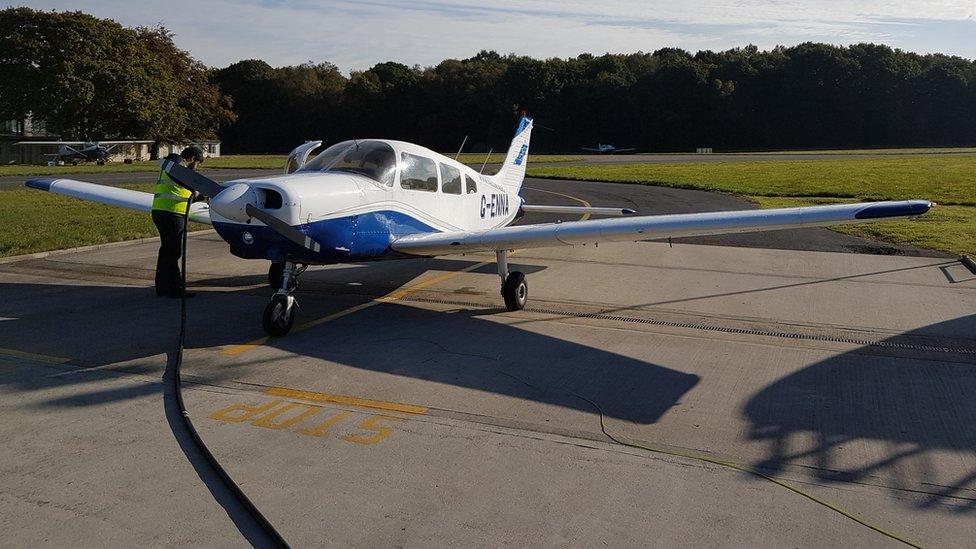
EFG Flight School has been training pilots at Biggin Hill since 1947
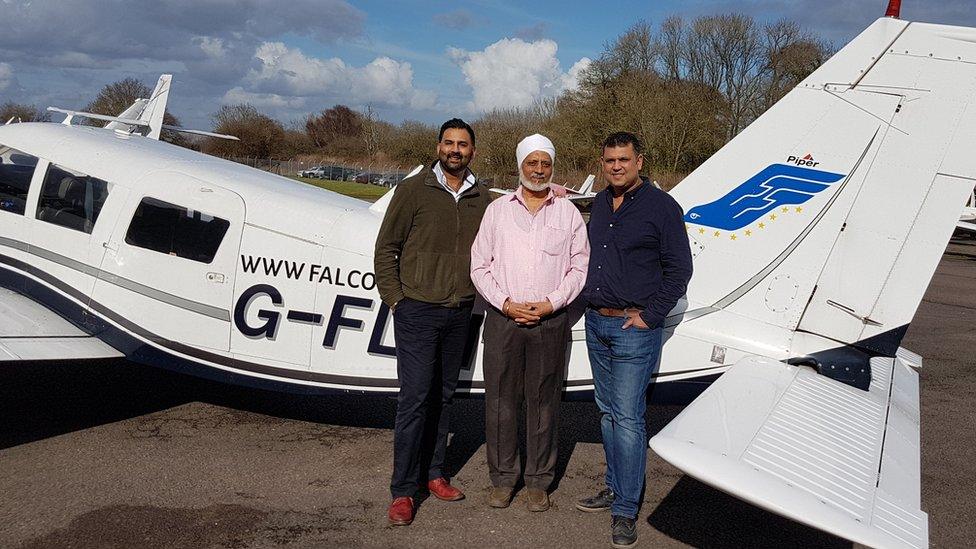
Falcon Flying Group dismissed "safety concerns"
The airport said an increase in business aviation meant that flight patterns were becoming more complex, making it impossible to "maintain high safety standards to which the airport operates".
But Falcon Flying Group director Anoop Singh Bamrah said: "These safety concerns are just not true.
"Airports around the world work perfectly safely with a mix of commercial and trainee pilots, and we have never had an incident [involving] harm or loss of life."
- Published13 February 2017
